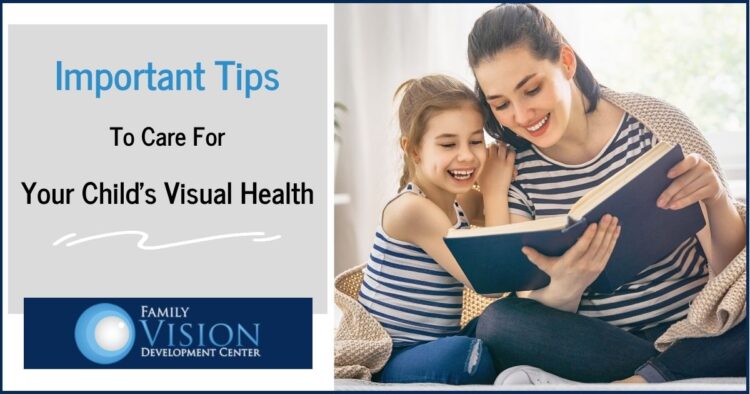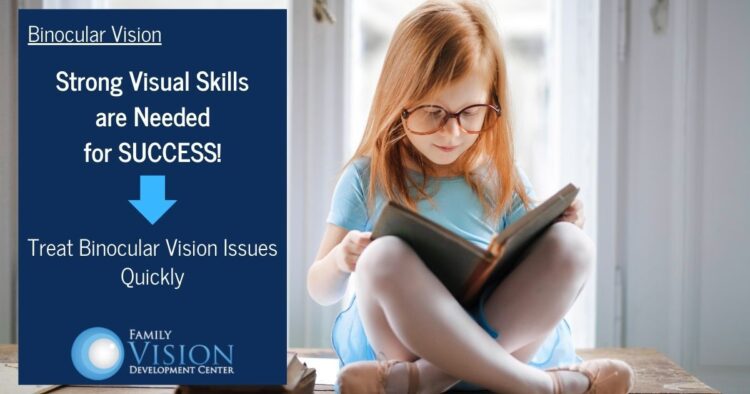

10 Crucial Facts Every Parent Should Know About Children’s Vision
Healthy vision is crucial for a child’s development and learning. Yet, many parents are unaware of important basic facts about their children’s eye health. Here are 10 essential things every parent should understand about children’s vision.
Early Detection is Key
The first few years of a child’s life are critical for vision development. For this reason, regular vision exams should start as early as six months, followed by another at 3 years old and again before starting school. These important exams should continue annually after that, as early detection of issues can prevent potential complications and support healthy visual development.
Vision and Learning are Closely Related
Undetected vision problems can absolutely impact a child’s academic performance. If your child struggles with reading, comprehension, or shows signs of disinterest in learning, an eye examination is crucial to rule out any potential vision issues.
Screen Time Matters
In today’s digital age, children are exposed to screens more than ever. Unfortunately, children’s vision can be affected by this digital screen use. Excessive screen time can lead to digital eye strain and potential long-term issues. Implementing the 20-20-20 rule (every 20 minutes, look at something 20 feet away for at least 20 seconds) can help alleviate eye strain.
Healthy Vision is Not Just 20/20
While 20/20 vision is an important indicator of good vision, other factors like eye teaming and focusing abilities are equally important. Regular eye exams assess overall vision health, not just basic clarity.
Always Be Thorough with Eye Safety
Whether engaging in sports or playing at home, protecting your child’s eyes is paramount. Always make sure they wear appropriate eye protection, especially when participating in activities with a risk of eye injury.
Proper Nutrition Can Support Eye Health
A balanced diet rich in vitamins and minerals, particularly vitamin A, plays a vital role in maintaining children’s vision. Include foods like carrots, spinach, and eggs to support your child’s eye health.
Certain Signs Can Indicate a Vision Issue
Kids don’t always have the ability to explain the presence of a vision problem. However, there are certain signs to watch out for that can indicate an underlying issue. Some of the most common signs would include squinting, rubbing their eyes excessively, holding objects very close, head tilting, misalignment or abnormal turning of one or both eyes, frequently closing one eye, headaches and light sensitivity. Of course, any symptoms that you have questions about should always warrant a visit to our office for evaluation.
Genetics Can Play a Role in Eye Health
Children’s vision can often be affected by a genetic component. Family history can influence a child’s predisposition to certain eye conditions. Therefore, inform your eye care professional about any family history of eye issues in order to ensure comprehensive and proactive care.
Don’t Wait Until There is a Problem
Regular eye exams are essential for preventative care. Sometimes, the most effective treatments are most successful when applied early. This early detection and treatment can prevent vision problems from impacting your child’s daily life as well as their future.
Family Vision Development Center is Your Partner in Children’s Vision
At Family Vision Development Center, we are dedicated to caring for and protecting the visual health of our patients of all ages. When your child visits our team regularly for vision exams, we are able to closely monitor their vision and quickly detect and treat any issues that may arise. Additionally, we can provide important guidance on issues such as eye safety, proper care of glasses or contacts, or important post-concussive vision care, as well as provide advanced treatment of visual disorders through our effective vision therapy programs. Contact our Aurora office at 630-862-2020 to learn more or to schedule an appointment.
Family Vision Development Center is a full-service vision center offering innovative vision therapy services, sports vision therapy services, post-concussive vision rehabilitation, comprehensive vision exams for eyeglasses and contact lenses, management of ocular diseases including glaucoma, diabetes, macular degeneration and cataracts, and a state-of-the-art optical center offering the latest designs in eyewear.

